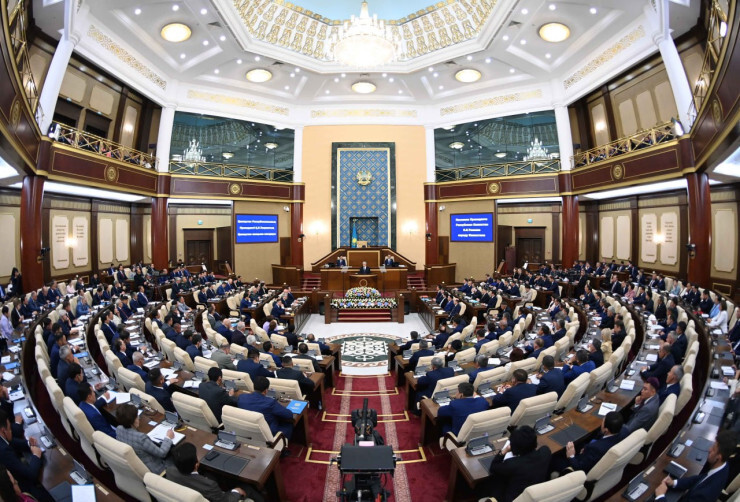On June 30, the members of the VIII convocation of the Mazhilis concluded their third session and went on vacation, having passed the midpoint of their term. Co-founder of Astana Open Dialogue, Aibek Kumysbekov, provided an assessment of the interim results of the parliament’s lower house work in a commentary for Spik.kz.
According to his assessment, over the past two and a half years, the Mazhilis of the VIII convocation has become a significantly more active and influential participant in the political process. The expansion of parliamentary representation from three to six factions, along with the inclusion of single-mandate members, reshaped the configuration of the chamber and raised the level of discussion. Parliamentary activity has gained meaningful dynamics, and discussions have shed their previous formality.
One notable example is the work on the new Tax Code. The document was discussed twice at the Public Chamber under the Mazhilis, with active participation from civil society and business sector representatives.
A special role in providing expert support to the process was played by the Astana Open Dialogue meeting in 2024, which included members of the Parliament and the Public Chamber. As a result of that session, an analytical report containing concrete proposals was submitted to Parliament. In parallel, systematic engagement with the business community was carried out, including through the efforts of members of the Parliament from the Respublica party, who organized public and expert meetings with a focus on the work of regional representatives.
The importance of political pluralism in the current convocation of the Mazhilis is particularly emphasized. Parliament members now have the opportunity to defend their own positions and engage in meaningful debates, which positively affects the quality of parliamentary work. Increased activity by new parties has increased competition within parliament, particularly in terms of parliamentary inquiries and responses to government initiatives. Voting on draft laws increasingly reveals differences among factions, indicating that parliamentary work is becoming genuinely substantive rather than merely declarative.
The emerging model of “government proposal – open discussion – search for compromise” fundamentally differs from previous practices. It fosters a more balanced system of checks and balances within the country’s new political architecture.
According to his assessment, over the past two and a half years, the Mazhilis of the VIII convocation has become a significantly more active and influential participant in the political process. The expansion of parliamentary representation from three to six factions, along with the inclusion of single-mandate members, reshaped the configuration of the chamber and raised the level of discussion. Parliamentary activity has gained meaningful dynamics, and discussions have shed their previous formality.
One notable example is the work on the new Tax Code. The document was discussed twice at the Public Chamber under the Mazhilis, with active participation from civil society and business sector representatives.
A special role in providing expert support to the process was played by the Astana Open Dialogue meeting in 2024, which included members of the Parliament and the Public Chamber. As a result of that session, an analytical report containing concrete proposals was submitted to Parliament. In parallel, systematic engagement with the business community was carried out, including through the efforts of members of the Parliament from the Respublica party, who organized public and expert meetings with a focus on the work of regional representatives.
The importance of political pluralism in the current convocation of the Mazhilis is particularly emphasized. Parliament members now have the opportunity to defend their own positions and engage in meaningful debates, which positively affects the quality of parliamentary work. Increased activity by new parties has increased competition within parliament, particularly in terms of parliamentary inquiries and responses to government initiatives. Voting on draft laws increasingly reveals differences among factions, indicating that parliamentary work is becoming genuinely substantive rather than merely declarative.
The emerging model of “government proposal – open discussion – search for compromise” fundamentally differs from previous practices. It fosters a more balanced system of checks and balances within the country’s new political architecture.
“Within the framework of the formula «strong president – influential parliament – accountable government», significant steps have been taken to strengthen the role of parliament. It’s clear that political traditions cannot be transformed in just two years, but there is already steady progress in this direction. It is critically important to maintain pace, consistency, and a phased approach. When it comes to political reforms, haste is unacceptable — and this, it seems, is understood both in parliament and in the Presidential Administration”, — noted Aibek Kumysbekov.
